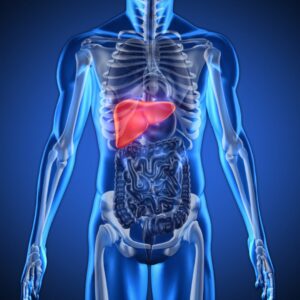Breast cancer is one of the most common cancers affecting women worldwide. While medical treatments have advanced significantly, many people are also interested in natural ways to prevent and manage breast cancer. This article explores various natural strategies that can contribute to breast cancer prevention and complement conventional treatments.
Diet and Nutrition To Manage Breast Cancer
- Antioxidant-Rich Foods: Consuming foods high in antioxidants can help protect cells from damage caused by free radicals. Berries, leafy greens, nuts, and seeds are excellent sources of antioxidants. These foods can reduce oxidative stress, which is a contributing factor to cancer development.
- Cruciferous Vegetables: Vegetables like broccoli, cauliflower, Brussels sprouts, and kale contain compounds such as sulforaphane that have been shown to have anti-cancer properties. These compounds help detoxify carcinogens and inhibit the growth of cancer cells.
- Omega-3 Fatty Acids: Omega-3 fatty acids, found in fatty fish like salmon, flaxseeds, and walnuts, have anti-inflammatory properties that can reduce the risk of cancer. They can also inhibit the growth of cancer cells.
- Fiber-Rich Foods: High-fiber diets can help reduce the risk of breast cancer by aiding in the elimination of excess estrogen from the body. Whole grains, fruits, vegetables, and legumes are rich in fiber.
- Phytoestrogens: Foods containing phytoestrogens, such as soy products, flaxseeds, and whole grains, can help balance hormone levels. These compounds mimic estrogen and can protect against hormone-driven cancers.
Lifestyle and Physical Activity
- Regular Exercise:Physical activity can lower the risk of breast cancer by helping to maintain a healthy weight, reducing inflammation, and balancing hormone levels. Aim for at least 150 minutes of moderate exercise or 75 minutes of vigorous exercise each week.
- Weight Management: Maintaining a healthy weight is crucial, as obesity is a significant risk factor for breast cancer. Excess body fat can lead to higher levels of estrogen and insulin, which can promote cancer growth.
- Limiting Alcohol Consumption:Alcohol can increase the risk of breast cancer by raising estrogen levels. Limiting alcohol intake to one drink per day or less can help reduce this risk.
- Avoiding Tobacco:Smoking is linked to an increased risk of various cancers, including breast cancer. Avoiding tobacco products can significantly lower cancer risk.
Stress Management and Mental Health
- Stress Reduction Techniques:Chronic stress can negatively impact the immune system and hormone levels, potentially increasing cancer risk. Techniques such as meditation, yoga, deep breathing exercises, and mindfulness can help manage stress.
- Social Support: Having a strong support network can improve mental health and help in coping with stress. Engaging in social activities and building relationships can provide emotional support and reduce feelings of isolation.
- Adequate Sleep: Quality sleep is essential for overall health. Poor sleep can disrupt hormone levels and weaken the immune system. Aim for 7-9 hours of sleep per night and practice good sleep hygiene.
Environmental Factors
- Reducing Exposure to Toxins: Limiting exposure to environmental toxins, such as pesticides, industrial chemicals, and pollutants, can reduce cancer risk. Opt for organic foods, use natural cleaning products, and avoid plastics that contain BPA and phthalates.
- Safe Use of Personal Care Products: Some personal care products contain endocrine-disrupting chemicals. Choosing natural, non-toxic products can help minimize exposure to harmful substances.
Natural Supplements and Herbal Remedies
- Vitamin D:Adequate levels of vitamin D are associated with a reduced risk of breast cancer. Sun exposure and foods such as fatty fish, fortified dairy products, and supplements can help maintain healthy levels of vitamin D.
- Curcumin: Found in turmeric, curcumin has potent anti-inflammatory and anti-cancer properties. Including turmeric in the diet or taking curcumin supplements can provide benefits.
- Green Tea: Green tea contains catechins, which have been shown to inhibit the growth of cancer cells. Drinking green tea regularly can contribute to cancer prevention.
- Herbal Remedies: Herbs such as garlic, ginger, and ginseng have shown promise in cancer prevention and support. Consulting with a healthcare provider before using herbal supplements is essential to ensure safety and effectiveness.
Regular Screenings and Medical Check-Ups
- Mammograms: Regular mammograms can help detect breast cancer early when it is most treatable. Following recommended screening guidelines based on age and risk factors is crucial.
- Clinical Breast Exams:Regular clinical breast exams by a healthcare professional can complement mammograms and help in early detection of abnormalities.
- Self-Exams: Performing regular breast self-exams can help individuals become familiar with their breasts and notice any changes early.
Integrating Natural Strategies with Conventional Treatments
While natural strategies can play a significant role in breast cancer prevention and management, they should not replace conventional medical treatments. Instead, they can complement medical treatments to improve overall health and well-being. It is essential to work with healthcare providers to create a comprehensive plan that includes both natural and conventional approaches.
Conclusion
Preventing and managing breast cancer naturally involves a holistic approach that includes a healthy diet, regular physical activity, stress management, and reducing exposure to environmental toxins. By integrating these natural strategies with regular medical screenings and treatments, individuals can take proactive steps to reduce their risk and improve their quality of life. Always consult with healthcare professionals before making significant changes to diet, lifestyle, or treatment plans.







